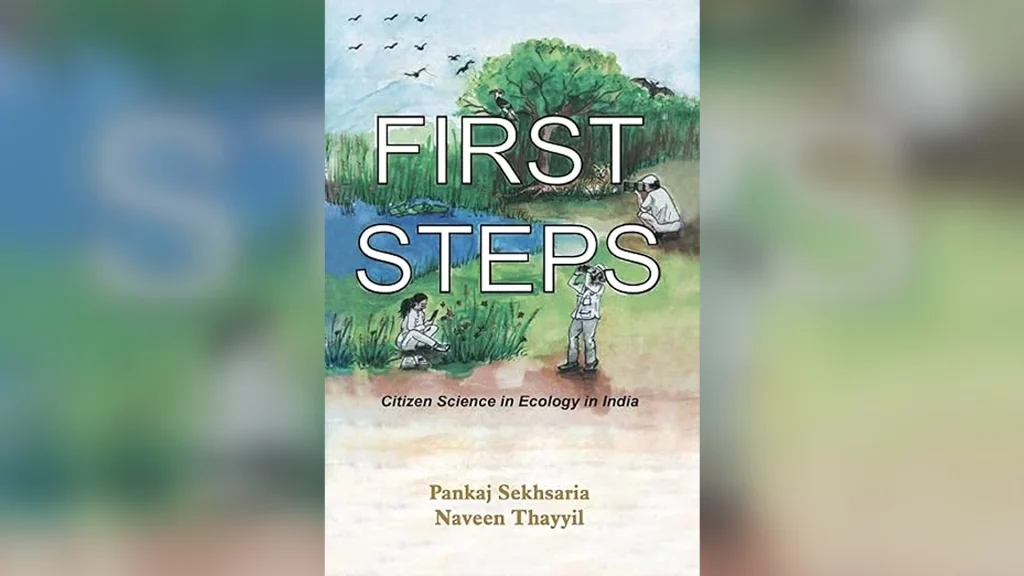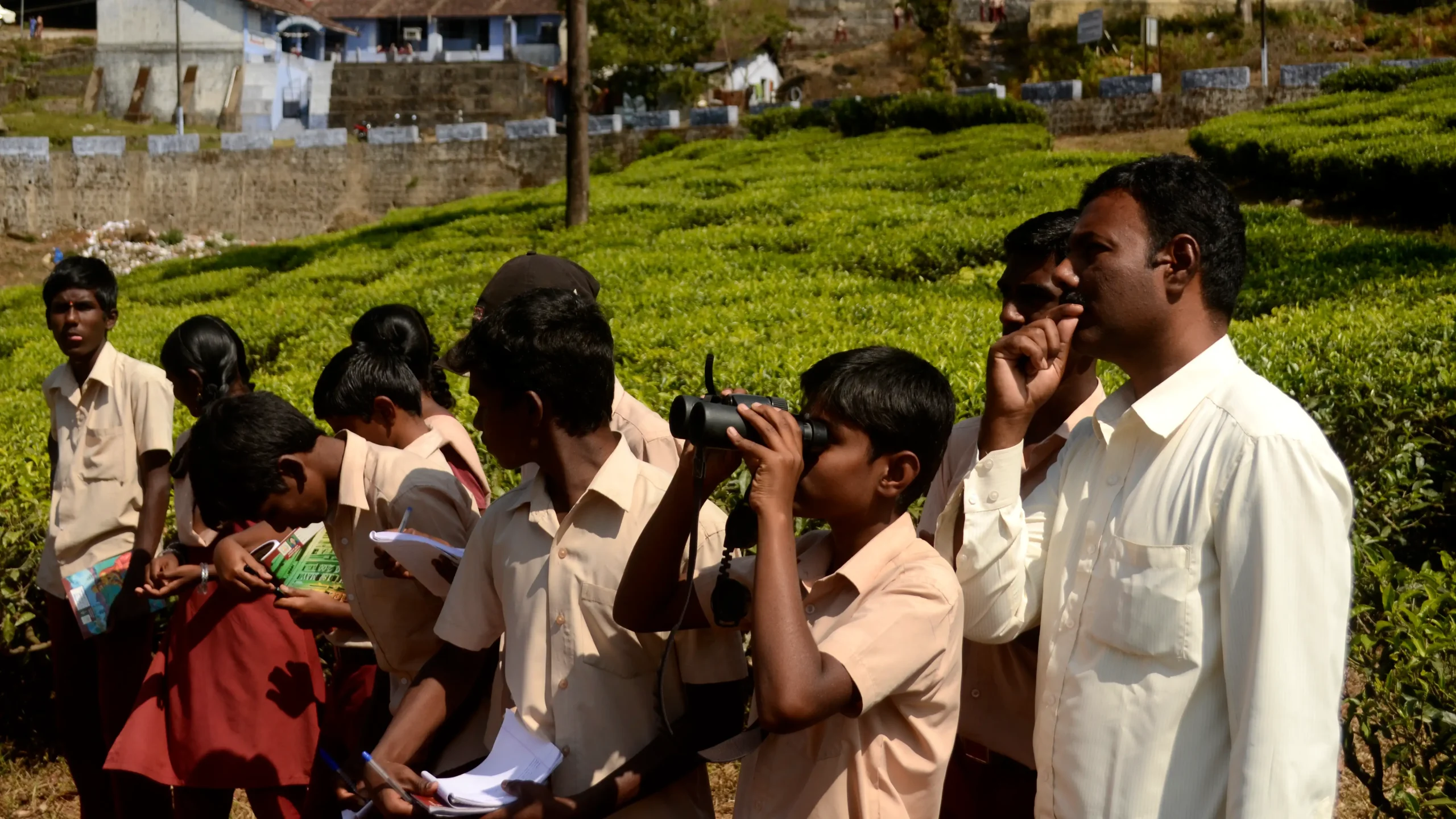Citizen science (cit sci) platforms play a crucial role in making scientific research more democratic and accessible by enabling public participation in data collection, analysis and discovery. These initiatives empower individuals, regardless of their background or expertise, to contribute meaningfully to scientific knowledge across diverse fields such as astronomy, ecology, archaeology, and biodiversity conservation.
Platforms like Bird Count India, eBird, Globe at Night, Heritage Quest, and Zooniverse, bridge the gap between professional researchers and the public. This process ensures that valuable scientific data is collected at a scale and detail that would be impossible otherwise. These platforms foster collaboration and engagement. This enhances scientific research and cultivates a deeper public appreciation for science and conservation efforts.
This article provides an overviwe of a few citizen science platforms. It starts with a brief discussion of ‘First steps’, a book that offers a thorough exploration of the rapidly growing field of citizen science in Indian ecological research.
Book notice
Pankaj Sekhsaria and Naveen Thayyil. 2022. First steps – citizen science in ecology in India. DST Centre for Policy Research, IIT Delhi, and Authors Up Front. [Rs. 250]
‘First steps’ is a compact 150-pages long book. Drawing from 18 months of research, the authors document, map and analyze 17 citizen science projects from across the country. In the process, they shed light on their origins, trends, challenges and pathways for growth.
This second-order study is situated within the broader frameworks of Science and Technology Studies and the Sociology of Knowledge. It delves into the underlying assumptions, methodologies, and institutional structures that define citizen science initiatives in India.
The book has a distinctive format. It blends narrative descriptions with structured tables.

This ensures that readers can engage with its insights in a flexible and accessible manner. By examining key developments through these 17 projects, ‘First steps’ provides a foundational understanding of the evolution of citizen science in India. It also offers perspectives on future direction in ecological research.
India-based platforms
Bird Count India: This is a citizen science initiative dedicated to collecting and sharing data to understand and conserve India’s bird populations. By engaging birdwatchers across the country, it facilitates both casual observations and systematic surveys to generate valuable knowledge.
Through collaborations with individuals, institutions and organizations, Bird Count India functions as an umbrella for a broad network of groups working toward the common goal of making bird data publicly accessible at fine spatial and temporal scales. This collective effort contributes to conservation of birds and ecological research across India.
Citizen Science India: It is a platform that brings together projects where the public collaborates with researchers to contribute to scientific discoveries. Covering diverse fields such as biodiversity, ecology, climate change, and social sciences, these projects empower individuals to collect data, analyze findings, and engage in meaningful research.
Participants, regardless of background or expertise, can contribute by observing wildlife, recording environmental changes, and assisting with data classification. This collective effort enhances scientific knowledge.
This also fosters public engagement with research. Citizen Science India serves as a hub for such initiatives, connecting volunteers with impactful projects across the country.
Global platforms
eBird: It is a global citizen science platform that harnesses the knowledge of birdwatchers to advance research, conservation and education. By collecting and archiving bird checklists, eBird provides freely accessible data to drive scientific discoveries and conservation efforts.
The platform enhances birding experiences with tools for managing lists, photos, and audio recordings. It also provides real-time species maps and sighting alerts.
eBird gathers over 100 million bird observations annually, with participation growing steadily. This makes it one of the world’s largest biodiversity-related science projects. It is managed by the Cornell Lab of Ornithology. The platform thrives through collaborations with organizations, experts, and birding enthusiasts worldwide.
Globe at Night: This is a global citizen science campaign that raises awareness about light pollution. It does this by inviting people to measure night sky brightness and submit their observations online.
Light pollution impacts energy use, wildlife, human health, and our ability to see the stars. With over 200,000 measurements from 180 countries collected over 14 years, Globe at Night is the world’s most successful light pollution awareness initiative, empowering individuals to contribute to science and conservation.
Heritage Quest: This is a citizen science project in the Netherlands. It engages volunteers in assisting archaeologists in the search for undiscovered archaeological heritage.
This initiative demonstrates how citizen science can extend beyond the natural sciences into fields like archaeology. It showcases the potential for similar projects in other regions, including India.
iNaturalist: In this platform, every observation contributes to biodiversity science, from rare species to common flora and fauna. Submitted data is shared with scientific repositories. These include places such as Global Biodiversity Information Facility (GBIF). This supports research and conservation efforts worldwide. Participation is simple. Volunteers need to observe and contribute to scientific knowledge.
Uniseller: The Unistellar community is dedicated to citizen space science, where amateur and professional scientists collaborate to explore the universe. Since professional astronomers cannot gather all the necessary data alone, citizen scientists contribute by observing, collecting and analyzing astronomical information. Driven by curiosity and passion, these volunteers play a crucial role in expanding our understanding of space.
Zooniverse: It is the world’s largest platform for people-powered research. It enables volunteers to assist professional researchers in making new discoveries. Open to anyone, regardless of expertise, Zooniverse allows participants to analyze real scientific and historical data from their own computers.
Volunteers contribute to projects spanning the sciences and humanities. This helps accelerate research that would otherwise be impractical.
A key part of Zooniverse is its discussion forum, Talk, where volunteers collaborate with researchers and each other. This forum allows for quick tagging, in-depth analyses, and even unexpected discoveries through collective insights. By engaging in discussions, volunteers play an active role in shaping research and advancing scientific knowledge.


No approved comments yet. Be the first to comment!